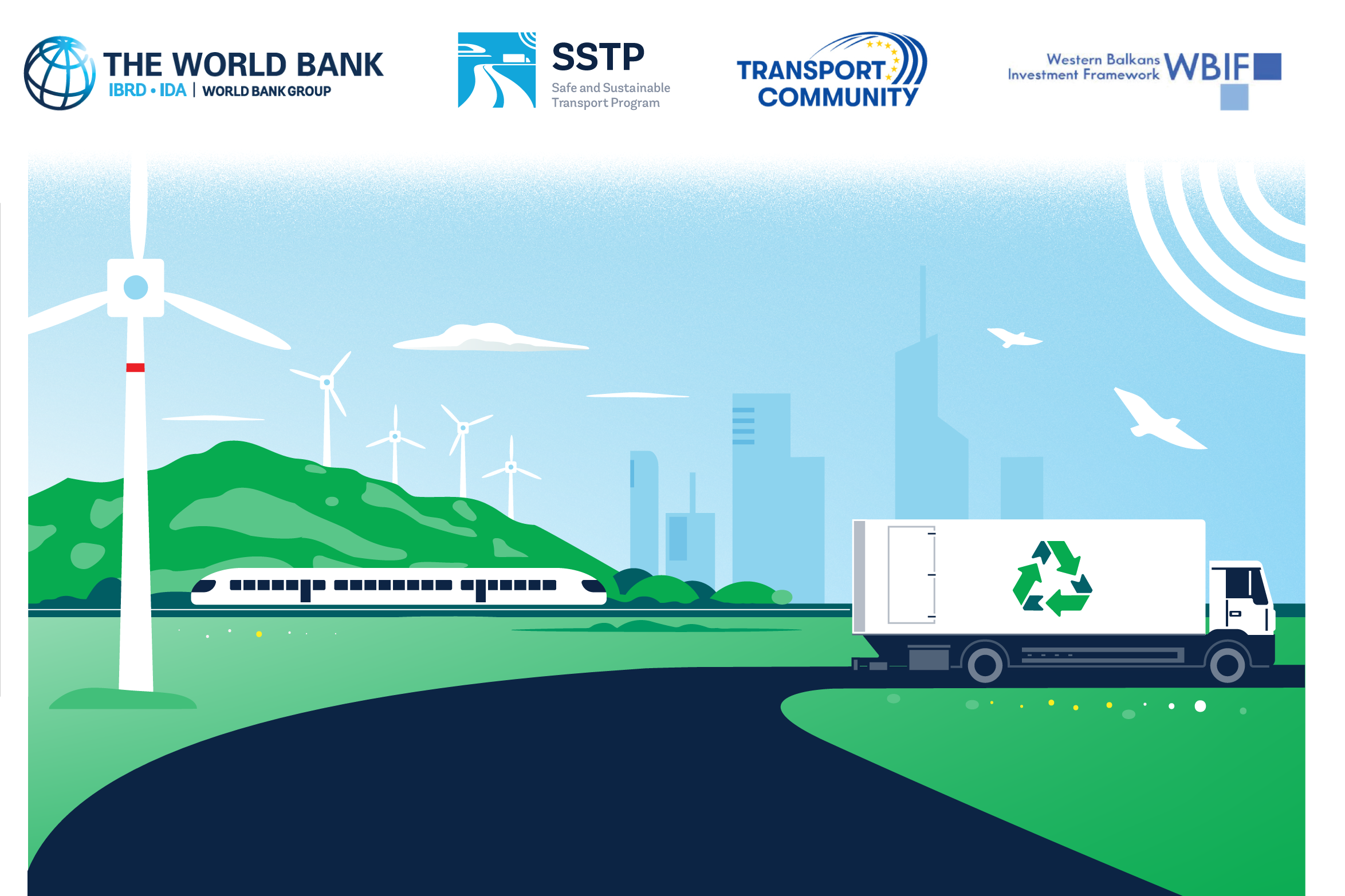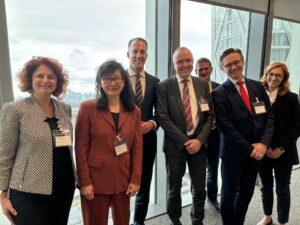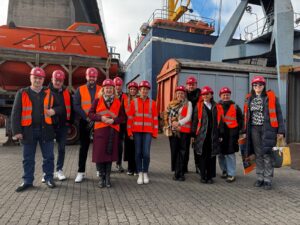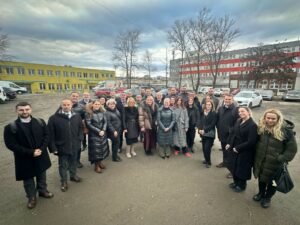LONDON – The inaugural Steering Group meeting for the Safe and Sustainable Transport Programme (SSTP) was held today at the European Bank for Reconstruction and Development (EBRD) headquarters in London. The event brought together key stakeholders to discuss enhancing transport safety and sustainability in the Western Balkans, aligned with the EU’s Green Agenda.
Chaired by Ms Xiaoqing Yu, World Bank Country Director, and co-chaired by Mr Holger Schroeder, Head of Unit at the European Commission’s Directorate-General for Neighbourhood and Enlargement Negotiations (DG NEAR), and Mr Matej Zakonjšek, Director of the Permanent Secretariat of the Transport Community, the meeting underlined the importance of strategic cooperation and innovative solutions in advancing the region’s transport infrastructure.
As the region faces climate change consequences, with energy and transport sectors being major greenhouse gas emitters, SSTP, funded by the EU and World Bank, supports initiatives like road safety improvements, alternative fuel infrastructure, and intelligent transport systems. It targets reduced travel times, enhanced safety, lower pollution, improved market access, increased trade, job creation, and socio-economic convergence with the EU.
The meeting discussed the status update on SSTP implementation which included discussions around the proposals received to date and to be considered under the 1st call for proposals, as well as expected proposals following the 2nd call for proposals. The participants also deliberated capacity building activities and plans for SSTP implementation. They also explored ways of integration Growth Plan with the SSTP, transport reform measures included in the Reform Agendas, Green Lanes, ITS, and e-freight.
Using existing World Bank projects, such as the Western Balkans Trade and Transport Facilitation Project and Serbia Railway Modernisation Project, SSTP collaborates with public partners and the private sector. The programme facilitates the region’s long-term recovery, the greening of transport, economic integration, and improved quality of life for Western Balkans residents. With the SSTP, the Western Balkans can benefit from technical assistance and knowledge, moving forward with the green and digital transition in transport.
SSTP provides grants to promote safer and more sustainable transport systems. Among the main outcomes of the planned investments are reduced travel times, increased transport safety, reduced air and noise pollution, and job creation. The projects under the SSTP would spur socio-economic convergence with the European Union and underpin further advances of the common regional market.
The Western Balkans six can benefit from accessing financing and technical assistance to enhance safety and transport sustainability in the four categories: (1) Railway safety – improvements in the rail network should focus on the improvement of safety at priority rail crossings; (2) Road safety – improvement of high-risk road sections; (3) Border Crossing Points: Modernisation and infrastructure capacity improvements at selected border crossing points; and (4) Deployment of sustainable and smart mobility solutions. Proposed projects should be linked to the different action plans and policy reform measures that have been developed by the Transport Community Permanent Secretariat.
Safe and sustainable transport allows for the efficient movement of goods and people, which is crucial for economic activity. Improved transport infrastructure can lead to reduced production and distribution costs, increased trade and investment, and enhanced connectivity with other regions. As a result, businesses can access new markets, and consumers can benefit from a wider variety of products and services. This is particularly crucial for the economies of the Western Balkans, where trade has played a significant role in driving growth and economic progress.

